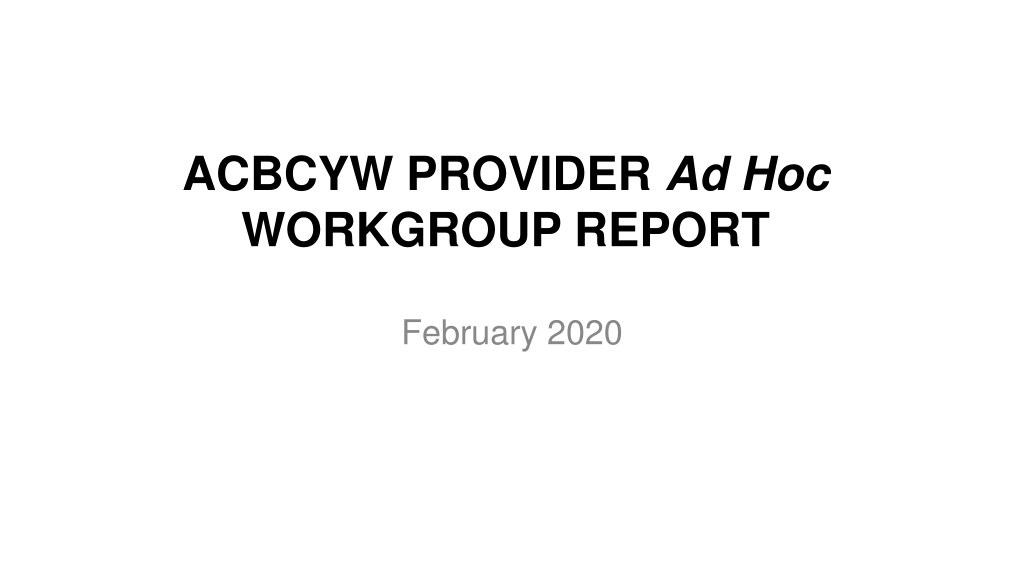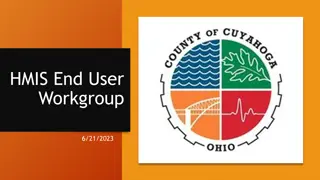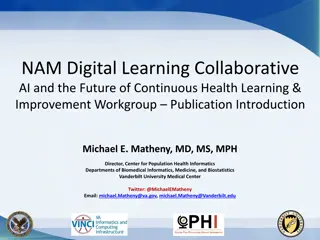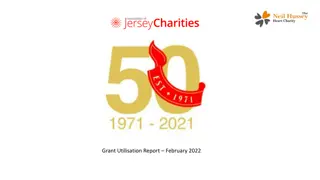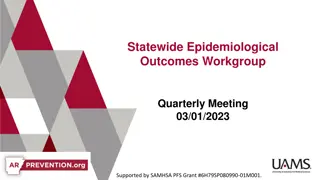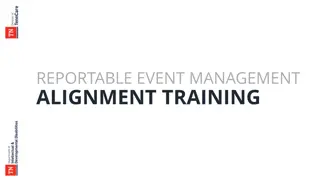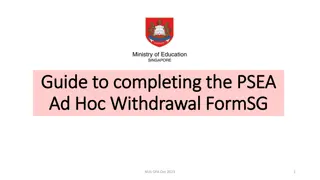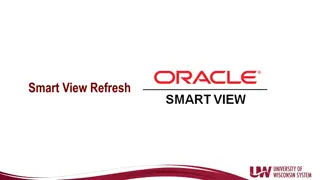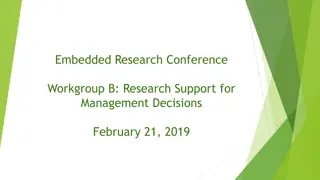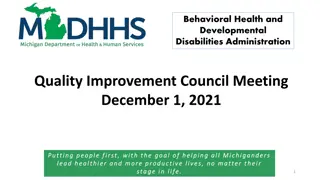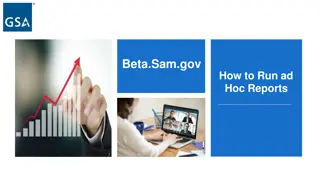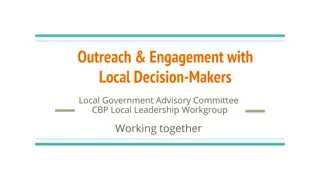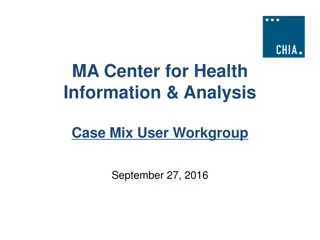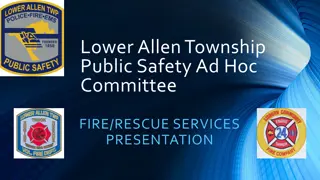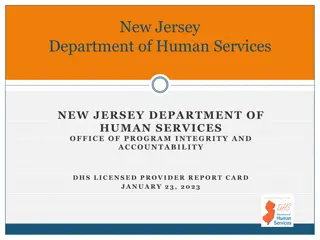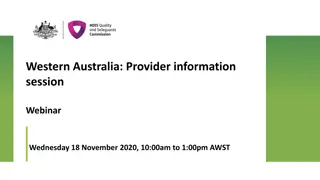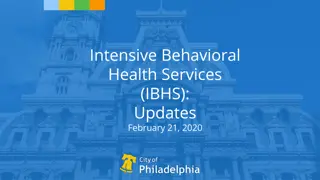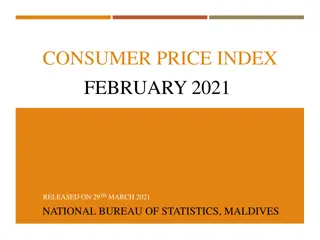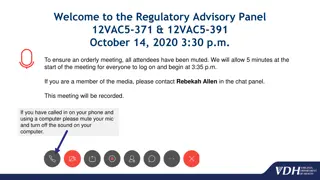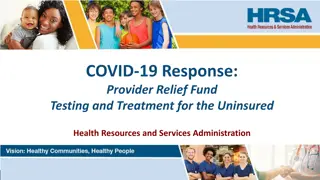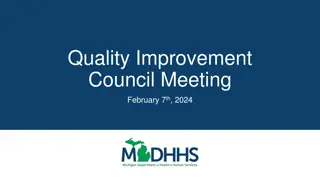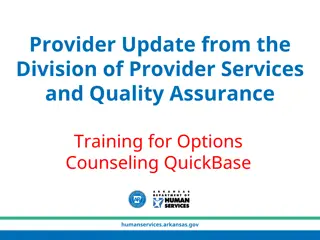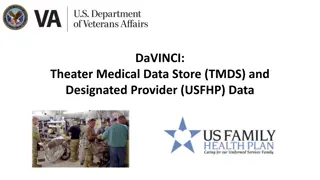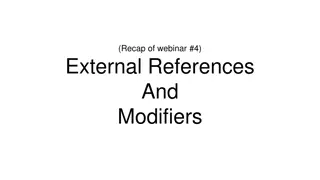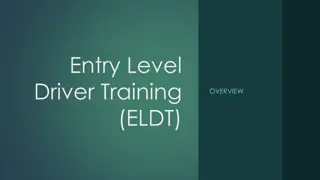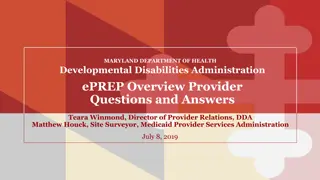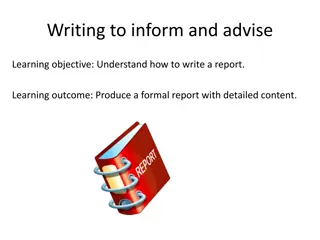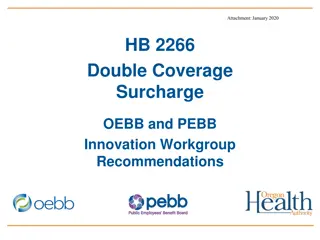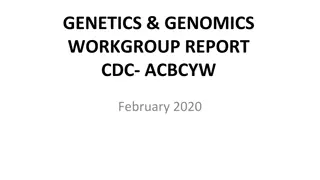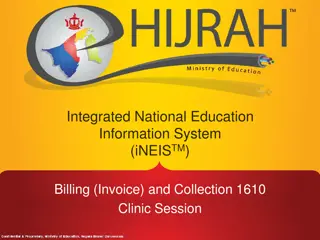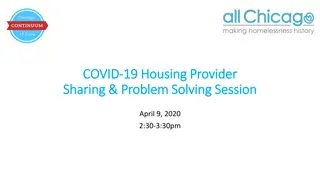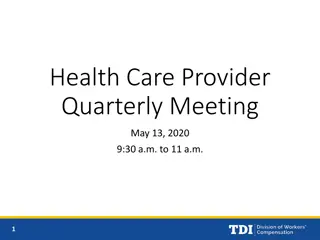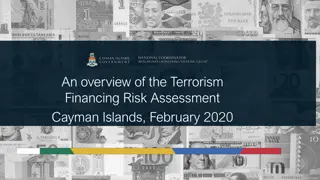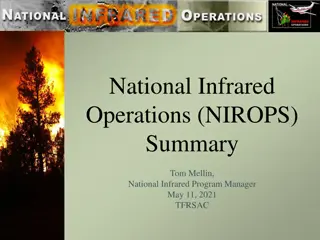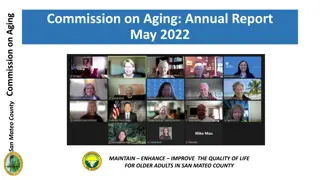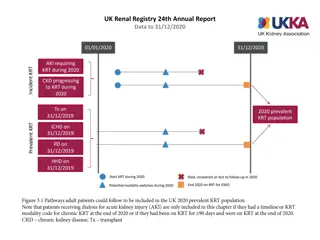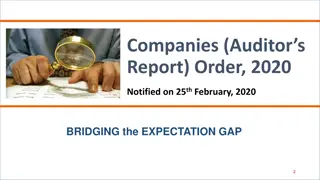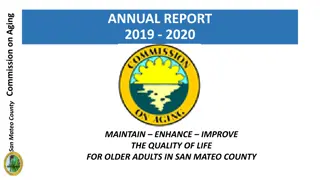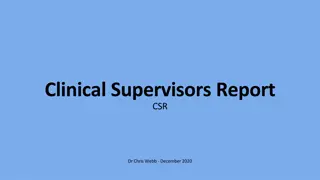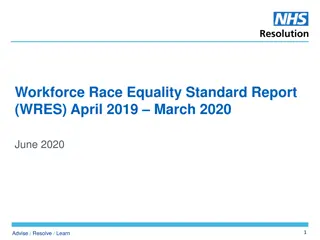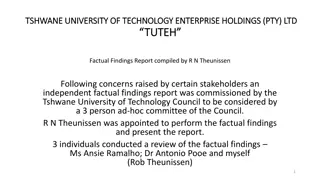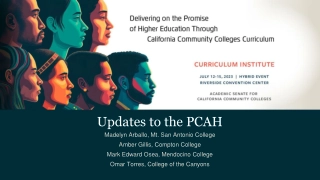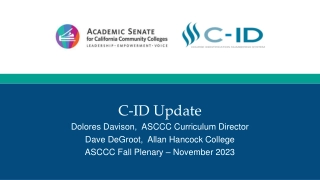ACBCYW Provider Ad Hoc Workgroup Report - February 2020
The ACBCYW Provider Ad Hoc Workgroup Report for February 2020 outlines the objectives of the workgroup, which include reviewing past activities, gathering new information to enhance provider behavior and education on breast cancer in young women, and advising on future programmatic efforts. The report details the workgroup members, actions taken to date, and existing provider education resources focused on risk assessment and genetic testing. Recommendations and next steps for enhancing provider education are also highlighted.
Download Presentation

Please find below an Image/Link to download the presentation.
The content on the website is provided AS IS for your information and personal use only. It may not be sold, licensed, or shared on other websites without obtaining consent from the author. Download presentation by click this link. If you encounter any issues during the download, it is possible that the publisher has removed the file from their server.
E N D
Presentation Transcript
ACBCYW PROVIDER Ad Hoc WORKGROUP REPORT February 2020
WORKGROUP CHARGE To review activities completed by the previous membership; gather new background information to further improve provider behavior, education and training regarding breast cancer in young women; and advise ACBCYW on prioritizing and supporting ongoing programmatic efforts in the future.
WORKGROUP MEMBERS Kenny Lin, MD, MPH- Chair, Professor of Family Medicine at Georgetown University Medical Center Lindsay Avner, Co-Chair, Founder, Bright Pink Nancy Mautone-Smith - HRSA Office of Women's Health, US Department of Health & Human Services Shubhada Dhage, MD, FACS- Breast Surgeon and Associate Director of Diversity in Cancer Research at NYU Perlmutter Cancer Center Deborah Lindner, MD, FACOG- Chief Medical Officer, Bright Pink Claudine Isaacs, MD-Medical Oncologist, Medical Director, Fisher Center for Hereditary Cancer and Clinical Genomics Research
ACTIONS TO DATE Workgroup convened on October 17, 2019 and discussed: The variety of resources that exist to educate providers The audience for provider education: Providers without a baseline set of knowledge/comfort who could benefit from 101 -type education and resources to refer out Providers with baseline knowledge who feel comfortable testing/counseling patients and need support in more nuanced, one-off cases Gaps in quality provider education surrounding specific topic areas including DTC genetic tests.
ACTIONS TO DATE (CONT) Workgroup then compiled existing resources into a central spreadsheet (including audience, access restrictions, key content areas addressed) and convened again to discuss these on December 19, 2019. Additionally, workgroup identified gaps in education and drafted committee recommendations as follows.
EXISTING PROVIDER EDUCATION RESOURCES Risk assessment Bright Pink https://www.brightpink.org/healthcare-providers/online-learning/ Genetic testing and counseling Medscape https://www.medscape.org/viewarticle/919116 The Jackson Laboratory https://www.jax.org/education-and-learning/clinical-and- continuing-education/cancer-risk-assessment-testing-and-management/bcr American Society of Clinical Oncology https://elearning.asco.org/product- details/hereditary-breast-ovarian-cancer-syndrome Breast cancer screening general American College of Radiology https://www.acr.org/Lifelong-Learning-and- CME/Learning-Activities/Mammography-CME-Module Inflammatory breast cancer American College of Surgeons/NAPBC https://www.facs.org/quality- programs/napbc/education/webinars/inflammatory-breast-cancer
Image result for cdc logo Understanding Early Onset Breast Cancer A review of EOBC risk factors, assessing EOBC risk in patients, and risk mitigation measures. This course is one component of a Centers for Disease Control and Prevention (CDC) cooperative agreement to develop innovative provider education materials on early onset breast cancer in high-risk populations, specifically targeting obstetrician-gynecologists (ob-gyn) and other women s healthcare providers including nurses, nurse practitioners (NPs), physician assistants (PAs), and internists. This elearning is part of the provider- focused portion of the CDC s Bring Your Brave campaign, which provides information about breast cancer to women younger than age 45 by sharing real stories about young women whose lives have been affected by breast cancer. Image result for bring your brave Screen # of ## Screen # of ##
RECOMMENDATIONS 1. Create a "one-stop shop" repository* on the CDC website that houses: All of the current, evidence-based, medically-sound provider educational online learning modules that exist Searchable FAQ with links to medical journals included Democratic, user-friendly comparison of different tests (provider-initiated and DTC) Connections to referrals for genetic counseling, specialists for patients requiring more in-depth review Recommend one login to access all modules; the current need to set up different logins is cumbersome. * Strong user experience necessary to meet the needs of providers with varying needs and must acknowledge inconsistencies (i.e. because each resource was uniquely authored, different sources informed output)
RECOMMENDATIONS (CONT) 2. Develop simple supplemental provider educational resources to address gaps in content: DCIS DTC genetic testing Pregnant/Post-partum patients Pathologic High Risk Genetic High Risk Atypia Other cancers intersecting with breast
RECOMMENDATIONS (CONT) 3. Develop comprehensive promotion plan to amplify the resource and drive greater provider engagement of existing resources. 4. Identify process to ensure regular review and all timely updates are reflected including recommendations, new resources, etc.
